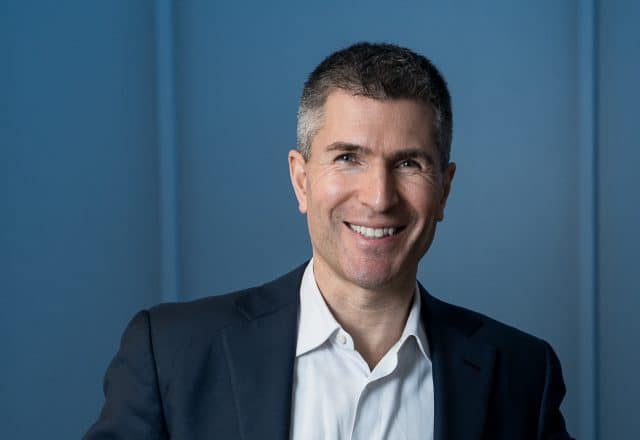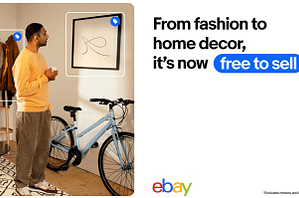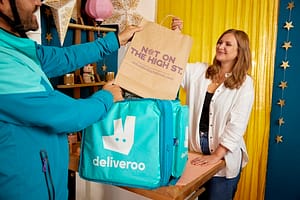VITAL STATISTICS
- Company: Quill
- Your name and role: Ed Bussey –CEO and Founder
- What the company does: Quill works with retail giants, travel companies and marketplaces (like Tommy Hilfiger, eBay, Thomas Cook, John Lewis) to produce high-quality multi-language content for their online stores, helping them to increase sales and improve overall e-commerce performance
- Founded: 2011
- Size of team: 50+ (and 2,400+ freelancers)
1.You started out as a member of the founding team and Global Marketing Director of retail powerhouse figleaves.com, and have since gone on to share your tech expertise with brands like John Lewis and eBay. Talk us through your journey.
It was actually during my time at figleaves.com that I first came up against the significant content challenges that Quill is now designed to solve.
We found that – even though we were beating our bricks-and-mortar competition due to the sheer variety of products, brands, colours and sizes that we were able to stock by virtue of operating online – this paradoxically led to falling conversion rates in some of our product categories. Consumers were actually being overwhelmed by the breadth of choice, and with very little informational content to help them make confident purchase decisions, they increasingly made no decision at all.
At Quill, we now call this crucial sub-set of digital content ‘Primary Content’ – and we view it as essentially replicating the role of the human shop assistant for the online environment. When I was looking at the market prior to founding Quill in 2011, it was clear that there weren’t any businesses that were solving this enormous problem: how to produce high-performing, on-brand Primary Content, in multiple languages, at the speed and scale required by the internet.
This is how I came to found Quill, precisely to address this problem – and my aim is to continue to grow the business into a market-defining solution and go-to content partner for global brands.
2.What was your first business venture and how did you bankroll yourself?
I set up my first business, which was a small publishing operation, around 30 years ago now, in my university days at Cambridge. I sold the business to a fellow undergraduate before heading off to join the Royal Navy and subsequently the Foreign Office, before returning to entrepreneurialism with figleaves.com in the early 2000s.
3. CBRE has recently stated that e-commerce is not the reason for the high-street woes? What is your take on that?
I would agree that ecommerce certainly isn’t the only reason. The fact is that consumers are now enjoying much more positive shopping experiences online than they are in some shops on the high street, in terms of breadth of product selection, information available to them, and of course the convenience of being able to buy from home.
But I still believe there’s a place for the high street within the multi-channel shopping experience, and there are plenty of examples of brands doing this really well, including the likes of Lulu Lemon, Rapha and Arc’teryx. These companies are building stores which are more than just aisles of products – they’re brand experiences where people can make real human connections, and it’s difficult to replicate this online.
The simple fact is that too many stores are boring and out of date, offering lacklustre products and experience – so it’s no surprise that consumers aren’t bothering to leave their houses, get in the car, pay for parking and so on, to shop for items they could get far more conveniently online. In that respect, physical retailers need to up their game.
4. What, according to you, is the main reason behind for the weakening UK retail sales figures especially when Black Friday offers seem to be doing so well?
I think there’s no single factor driving this change, but rather a confluence of factors. Clearly, with the way the economy is moving, consumers are becoming increasingly price-sensitive and more cautious with their spending. And this is compounded by all of the political developments that are unfolding at the moment, including Brexit.
In this environment of uncertainty and reduced consumer confidence, it’s therefore not surprising that events centred around heavy discounting, such as Black Friday, will do well. However, whilst strong Black Friday figures are encouraging, this is still ultimately a displacement of what would otherwise be full price purchases – impacting retailers’ margins.
5. Why did you choose digital as your main area of work and focus?
I chose to focus on the digital space because I saw it as one of the industries with the biggest potential for growth. It was also where I had identified a gap in the market, with Quill, to build a new, innovative approach to a problem that had not been solved through traditional non-digital means.
6. Tell us about your latest digital venture Quill. How is it shaping the content marketing business in the UK?
As ecommerce continues to experience immense growth, it’s clear that demand for high-quality digital content is only going to increase. But in most cases, ecommerce businesses simply don’t have the production resources, quality control processes and editorial expertise needed to create the high volumes of quality content needed, across the formats, topics and languages required.
While contract publishers and agencies can produce excellent ‘hero’ content and are rebadging themselves for the digital environment, they are typically slow, expensive and unable to deliver at scale – and, crucially, have no specialism in multi-language Primary Content production.
With Quill, we’re defining a completely new model for high-volume, high-quality, multi-language content production, based on the powerful combination of technology and talent.
The model leverages a highly flexible, global network of 2,500+ freelance content creators, centrally managed through our Quill Cloud platform: AI-powered technology we’ve developed that streamlines and automates content production processes to enable a level of efficiency, speed and scale that’s impossible to achieve in-house or via traditional agencies.
To date we’ve produced over 40 million words in 40 languages, delivered at speeds of 300+ words per minute, to over 170 of the world’s leading brands.
7.What is on the horizon for your industry in the next 5 years?
Over the next few years, I think we’re likely to see the real emergence of ‘conversational commerce’ – that is, voice-activated search and shopping, with the likes of Amazon investing heavily in this area. I also expect AI to become a more integral part of business operations across a range of industries (including ecommerce and content), removing some of the mundane, formulaic and repetitive tasks from people’s jobs and releasing them to focus on more creative, strategic and value-adding activities.
8.Besides work, you are quite an adventure junkie. Tell us about your most memorable experience so far.
There are two: one is the most formative, the other is the most memorable. My most formative experience was when I was 17, when I won a place on an expedition to Alaska and we spent six weeks on our own in the wilderness. I’ll never forget a particular moment one night when I was on bear watch: sitting alone, in the half-light (because in Alaska it never got fully dark), with the moon and sun in the sky at the same time.
I had an enormous view of a huge river and mountains in front of me, but it was totally silent – and I got a profound sense of isolation in the wilderness, and in nature, that was absolutely life-changing and still gives me goosebumps to remember it now.
The most memorable experience, however, was a walk to the North Pole in 2010 that three of us did together – another life-changing trip!
9.Any London tech start-up you are watching and why?
Building a business like Quill is so all-absorbing that I actually don’t have the time or headspace to look far beyond our area – so I’m not actively watching any other tech start-ups at the moment!
10.Biggest regret of your life?
I’d start by saying I don’t really believe in regrets: we make choices along the way in life, and every choice – even the ones that lead to uncomfortable experiences – are ultimately positive because that’s another learning. However, if the question is, knowing what I know now, what might I have done differently? I’d have launched Amazon in the 2000s, of course!






Leave a Comment